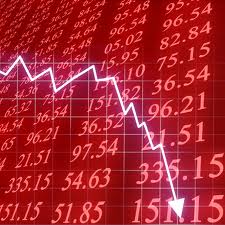When investing and trading in the Nairobi Stock Exchange, losses are inevitable sometimes. You are going to lose money if you invest in stocks. Sooner or later, it’s bound to happen. In its simplest and perhaps most painful form, you buy a stock then watch the price go down and stay down. At some point, you decide to end the pain and sell. This type of loss is called a capital loss. There’s another type of loss that is less painful, but very real, lost opportunity. Say you bought 100,000 shillings worth of shares in a very profitable company. One year later, after some ups and downs, the stock is very close to what you paid for it. You may comfort yourselves and say you have not lost any money; but you have lost opportunity. You tied up your money in the stock for one year and earned nothing. If you have put the money elsewhere, you would have earned some interest on it. So what happens when you lose out in the stock market? Accept it.
It may be a bitter pill for your Chama members to swallow but you should know that when investing in stocks it is a pill that should be expected along the way. If stocks go down, sometimes it can be difficult to stick with your original investment strategy. Should you sell now and protect your capital? Should you wait? Will it bounce? If you sell now will it bounce? Should I sell half now? Here are 3 essentials to help your Chama cope.
One – what you hold in your portfolio is more than a piece of paper; it is a part of a business. You own a share in that business and as a result have a stake in the prosperity of that particular business. You will find that along the way many people simply invest in stocks simply because they are going up and hope to sell before they go down below the price at which they were purchased. These types of investors are more like gamblers than investors because they invest nothing solid into their holdings. What goes up must come down and these types of investors run a very real risk of losing money on these types of ventures. In order to be truly successful as a Chama you must do two things. First, you must not let emotion rule reason. Yes, its true not everyone will remain calm and emotions will run high as members panic. As the Chama leader, make an effort to calm down everyone as business and emotions are never a good combination. This is no different when it comes to investments in the stock market. Second, you must be able to evaluate the business and the potential of that business completely separately from the price of the stock. Remember that even the best company in the world is a lousy investment if you pay too much for the privilege.
Two – If you are trading with the big picture or the long haul in mind then you should look at falling prices as a blessing in disguise. If you look at it from this point of view, then declining prices only really indicate a good time to purchase more shares at a discounted price which means more shares for the same money.
Three – Don’t get emotional and encourage your Chama members to do the same. There is plenty of money to be made investing in the stock market, however you will make more money if you invest without emotion, and assess the current situation to identify if the party is over, or if you have been presented with an amazing opportunity. Buy and hold does not mean buy now and look at your positions in 10 years. It means investing in solid companies, and assessing along the way. Sometimes, things change, and you have to be willing to accept the change. Successful investors can easily identify if the share price is down for a bad reason, or is down to present them with a perfect opportunity to add more shares.
Related articles across the web
Categorised in: chama management, Chamas, Investment groups
This post was written by
Please Subscribe and get Notified when new articles are posted




